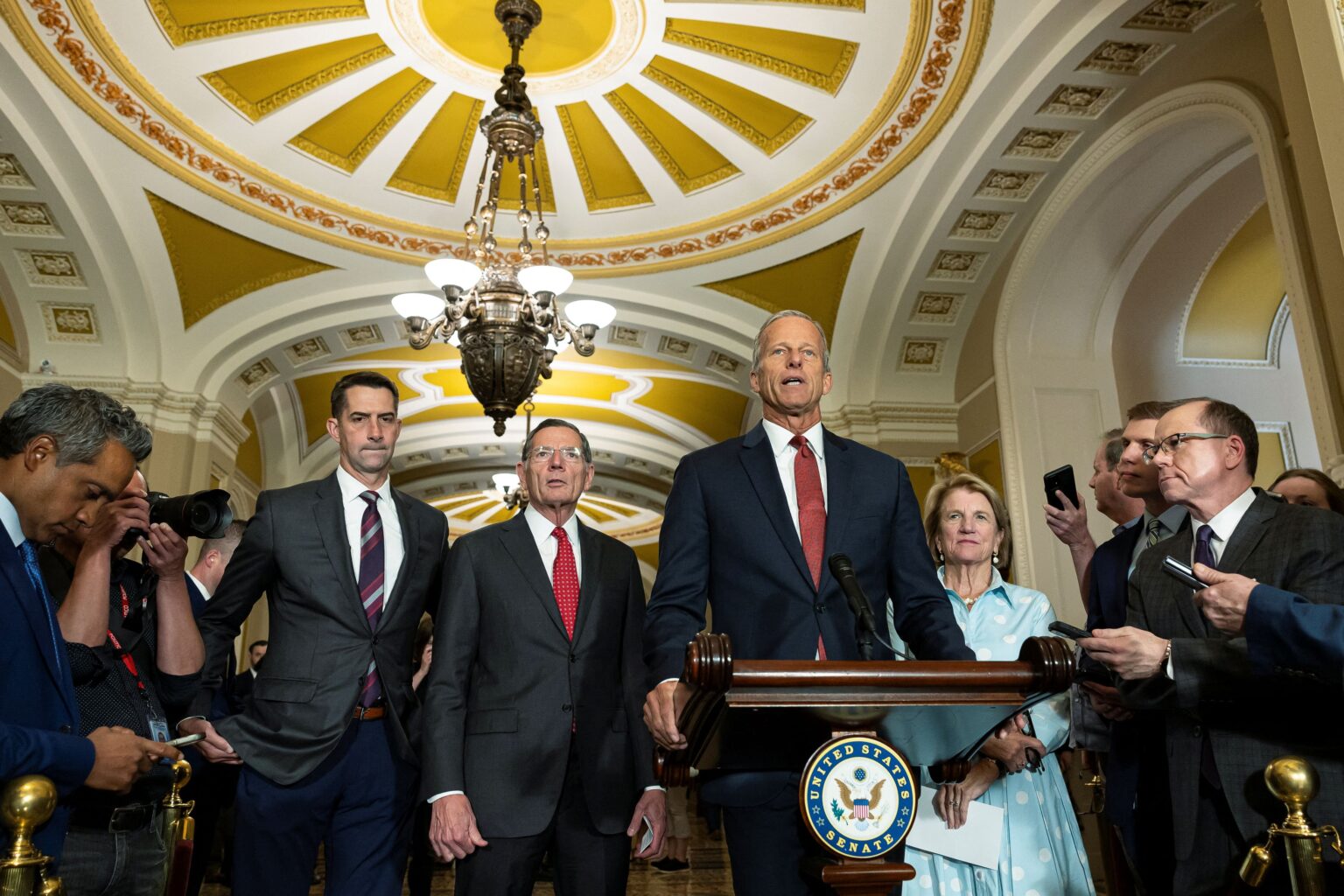President Trump Signals Potential Delay in Key Legislative Goals Amid GOP Discontent
In a recent development, President Donald Trump indicated he might extend the deadline for Congress to pass his ambitious legislative package, citing growing opposition within the Republican ranks over proposed cuts to vital social programs. This shift suggests a possible reevaluation of the timeline for enacting his signature policies, which aim to overhaul tax and immigration systems.
The Scope of the Proposed Legislation and Its Financial Implications
Trump has championed a comprehensive bill-referred to as the “One Big Beautiful Bill”-valued at approximately $3.3 trillion. This legislation seeks to renew and expand existing tax cuts, introduce new tax incentives, strengthen immigration enforcement, and initiate the construction of the “Golden Dome” missile defense system. The goal was to have this sweeping package ready for approval by Independence Day, which falls a week from Friday.
To fund these initiatives, the GOP proposed significant reductions to social safety net programs, notably Medicaid and the Supplemental Nutrition Assistance Program (SNAP). Medicaid, which provides health coverage for low-income individuals and those with disabilities, faces substantial budget cuts, sparking internal dissent among Senate Republicans. Similarly, proposed cuts to SNAP, a critical anti-hunger program formerly known as food stamps, have raised concerns among lawmakers and advocacy groups.
Internal GOP Tensions and Legislative Progress
The controversy surrounding Medicaid reductions has led to a revolt among some Senate Republicans, complicating the legislative process. Meanwhile, the House has already passed its version of the bill, but the Senate has yet to finalize its draft, which must then be reconciled with the House’s version before it can proceed to the president’s desk.
President Trump acknowledged the possibility of delays, stating, “It’s not the end-all. It could go longer,” but expressed a desire to meet the original deadline if feasible. House Speaker Mike Johnson echoed this sentiment, suggesting that if the Senate’s revisions diverge significantly from the House’s version, the legislation might miss the July 4th target.
Political Risks and Economic Considerations
Lawmakers are navigating a high-stakes gamble, attempting to pass a bill that promises economic benefits and electoral advantages. Senator Jim Justice of West Virginia described the effort as a “bold step” by the administration to position the U.S. economy on a more stable footing.
A key point of contention involves the Senate’s attempt to impose strict limits on Medicaid provider taxes-fees that states levy on healthcare providers to generate additional federal Medicaid funding. Some Republicans aim to use these taxes as leverage to reduce immigrant participation in benefit programs, while others worry about the financial stability of rural hospitals heavily reliant on Medicaid reimbursements.
However, the Senate parliamentarian recently ruled that these provider tax provisions violate the rules governing budget reconciliation, a legislative process Republicans are using to bypass potential Democratic filibusters. This ruling effectively halts the progress of the bill, with Democrats uniformly opposing the measure and Senate leaders planning to initiate procedural votes soon.
The Cost of Legislative Ambitions and Fiscal Concerns
The parliamentarian’s decision has cast doubt on the bill’s projected cost, which was initially estimated to be around $2.5 trillion. The ruling is expected to add approximately $250 billion to the bill’s price, heightening concerns among fiscal conservatives. Many House Republicans, already wary of increasing the national debt-which has surpassed $36 trillion-are increasingly skeptical of the legislation’s affordability.
Representative Chip Roy of Texas criticized Senate Republicans for what he perceives as a lack of seriousness regarding fiscal responsibility, urging the majority leader to honor commitments to align spending with legislative priorities.
President Trump’s Advocacy and Political Messaging
Amidst legislative hurdles, President Trump continues to rally support for the bill, emphasizing its importance for national security and economic prosperity. During a White House event, he claimed that signing the legislation would fulfill nearly all major promises from his 2024 campaign, framing it as a pivotal achievement.
Trump also directly addressed GOP opponents, including freshman Representative Rob Bresnahan from Pennsylvania, praising some members for their efforts while warning that opposition could have political repercussions. The president highlighted stories of workers and families benefiting from provisions like tax exemptions for tipped income and new credits for homeschooling, framing the bill as a boon for working Americans.
Looking Ahead: Uncertain Future for the Legislation
As the legislative process stalls, the outlook remains uncertain. The internal disagreements within the Republican Party, coupled with the procedural challenges posed by the parliamentarian’s ruling, suggest that the bill’s passage may be delayed beyond the initial July 4th deadline. The outcome will significantly influence the administration’s policy agenda and the broader political landscape heading into the upcoming election cycle.
Stay tuned for updates on the legislative developments and the ongoing debate over the future of America’s social safety net and fiscal policy.

